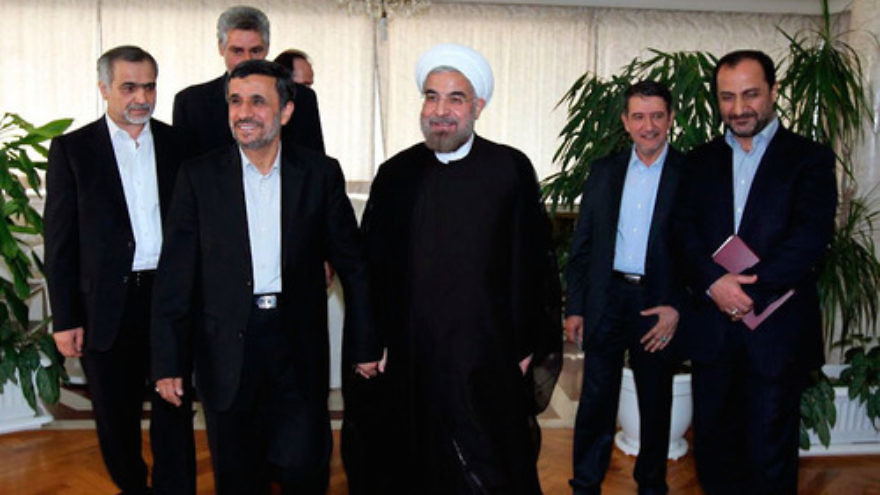Two nuclear-weapons experts said that the Israeli revelations about Iran’s nuclear program show a more extensive enterprise than previously thought and could prompt the International Atomic Energy Agency (IAEA) to step up its inspections of Iran, NPR reported on Tuesday.
David Albright, a former weapons inspector and current head of the Institute for Science and International Security, and Olli Heinonen, a former deputy director general of the IAEA, “agreed” that the information presented on Monday by Israeli Prime Minister Benjamin Netanyahu could be used for the IAEA to demand additional inspections of Iranian facilities.
Heinonen explained that pictures included in Netanyahu’s presentation showed equipment used to produce nuclear weapons that Iran did not admit to possessing. “They must have manufactured pieces of equipment in Iran. Where are those pieces? Who is keeping them?” he posed.
Albright, who had been briefed privately on the cache of documents, pointed out that the documents could give the IAEA grounds to inspect sites not previously checked.
Both Albright and Heinonen said the documents recovered by Israel provided new information about the scope of Iran’s nuclear-weapons program, contradicting claims of skeptics who said they contained nothing new.
Albright asserted that the documents convincingly refute Iran’s claim that it never had a nuclear-weapons program. “Here we have a jigsaw puzzle with 30 to 40 percent of the pieces [turned into] one that has 99 percent of the pieces. The picture is clear,” said Albright.
Heinonen described the documents as a “jackpot.” While he acknowledged that many of the images that Netanyahu presented were familiar to him, at the same time, he said “there was also new information.”
Netanyahu’s revelation that Iran had plans initially to build five 10-kiloton nuclear weapons was not previously known.


























